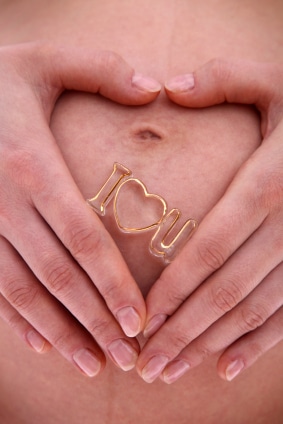 Is There a Difference Between Progesterone and Progestins?
Is There a Difference Between Progesterone and Progestins?
Many physicians do not realize that there is a difference between progesterone and progestins so it should not be surprising that many women do not that there is a difference either. Progesterone is a hormone the human body naturally makes. Progestins are a synthetic variation of progesterone with far different effects than progesterone save for one (will get to that later).
Pharmaceutical companies cannot obtain a patent on a drug/compound the body naturally makes. Therefore, they take what the body makes and modify it enough to get a patent hoping to maintain the function of the original hormone or compound.
But, even the slightest manipulation of a molecule can alter its function significantly. To make this point I suggest you look at the molecular structure of estrogen (the “female hormone”) and testosterone (the “male hormone”). They are nearly identical yet with vastly different functions. And, this is what we see with progesterone and progestins. Click here to see the molecular structure of estradiol (estrogen), progesterone, testosterone, and medroxyprogesterone acetate (a progestin).
Progesterone 101
Progesterone is a steroid hormone and is frequently called the hormone of pregnancy. There are receptors for progesterone in tissues throughout the body including endometrium, breast, brain, bones, blood vessels, and so on. It is primarily made in the ovaries and levels rise in the second half of a woman’s menstrual cycle and stay elevated in the event of pregnancy. Its main purpose besides supporting pregnancy is to balance the effects of estrogen on tissue. Estrogen stimulates breast and endometrial growth, while progesterone opposes that. When estrogen and progesterone are in balance the body functions as designed. If there is too much estrogen relative to progesterone problems occur.
What Are the Differences Between Progesterone and Progestins?
Both progesterone and progestins will protect against endometrial cancer and that’s where the similarities stop. In virtually every other regard they have opposite effects on the body.
Progestins: increase body weight, appetite, fluid retention, bloating, irritability, depression, headache, breast tenderness, LDL (bad) cholesterol, and blood pressure, and decrease HDL (good) cholesterol, energy, and sex drive. In addition, progestins can cause acne, nausea, sleep disorders, and hair loss. Progestins block the beneficial effects of estrogen on the heart (as seen in the Women’s Health Initiative) and also block the beneficial effects of estrogen on serotonin – the happy hormone/neurotransmitter.
Progesterone: decreases blood pressure and LDL cholesterol and increases HDL cholesterol, bone density, and hair density. Progesterone stimulates GABA receptors in the brain leading to calmness. One symptom of low progesterone is anxiety. It also increases metabolic rate and has anti-depressant effects.
A major key to remember is that estrogen and progesterone have to be in balance with one another. The reason progestins have many side effects is that many women are unable to fully metabolize progestins, and it’s the metabolites that cause many of the problems.
Which would you rather take?
Do I Need Progesterone if I Don’t Have a Uterus?
Remember there are receptors for progesterone throughout the body. It is not uncommon for me to hear women who have had a hysterectomy say their GYN told them they don’t need progesterone because the woman no longer has a uterus. That seems to be very shortsighted advice. REMEMBER – there are progesterone receptors throughout your body.
Your body will function better and you will most likely reduce the risk of other conditions if your progesterone is restored to youthful levels. There’s one exception. If in addition to not having a uterus, you also do not have a brain and heart and don’t have breasts, bones blood vessels, etc. – then you do not need this hormone.
Bio-identical versus Synthetic (non-bioidentical) Hormones
Here’s something I don’t quite understand. If a doctor has both bio-identical and non-bioidentical hormones at his/her disposal – what’s the rationale for giving a patient something foreign (non-bioidentical) to the body? Do they think they are safer? Do they think they will work better? My best guess is they think they are progesterone and progestins are the same. Plus, they do not understand the profit motive reasons behind pharmaceutical companies’ marketing of non-bioidentical hormones. Many pharmaceutical companies now have FDA-approved bio-identical hormones – this means these hormones were scientifically tested to be safe and effective.
